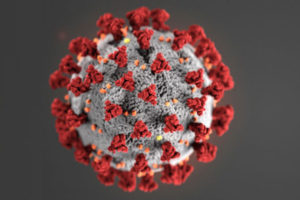Don’t use gloves as protection from COVID-19 – Medical Director
 Dr Charity Sarpong, the Greater Accra Regional Director of Health, said the fastest way to be infested by the Coronavirus (COVID-19) disease is by using gloves.
Dr Charity Sarpong, the Greater Accra Regional Director of Health, said the fastest way to be infested by the Coronavirus (COVID-19) disease is by using gloves.
She explained that wearing gloves gave false security, which made people think they were protected from the disease when, in fact, it exposed them more to it.
Dr Sarpong was speaking at a sensitisation session on COVID-19 for members of the Grace Baptist Church at Sakumono in Accra.
She said those who wore gloves used them for everything, thinking they were safe and would not wash their hands, which was dangerous.
She noted that healthy people need not wear facemasks but must rather stick to the protective guidelines, adding that it was infected persons that had to wear the masks in order not to spread the virus through their droplets.
Dr Sarpong assured Ghanaians that the country had capable health professionals to take care of the situation and urged them to immediately call the emergency lines provided by the Ghana Health Service (0558439868 or 0509497700) for treatment when they experience symptoms like fever, cough, sneezing and difficulty in breathing.
She said 60 out of a hundred people that would be exposed to the disease would not develop the symptoms and would recover on their own adding that few would progress to the serious stages and encouraged Ghanaians not to panic but avoid close contacts with people.
Dr Afua Twumasi, a Public Health Officer, on her part, advised citizens to wash their hands with soap under running water.
Demonstrating how to wash the hands, she said the palm, in between the fingers, the thumbs, the nails and the back of the hands should be washed thoroughly, adding that it should be the same way sanitizers were also applied.
COVID-19 is a family of viruses that cause illnesses ranging from common cold to more severe diseases such as Severe Acute Respiratory Syndrome (SARS) and the Middle East Respiratory Syndrome (MERS).
These viruses were originally transmitted between animals and people.
The symptoms include fever, cough, cold, and breathing difficulties and in more severe cases can lead to pneumonia, multiple organ failure and death.
Health experts advise that individuals observed personal hygiene, be physically active, drink plenty of water, eat healthily, avoid stress and have enough sleep to stay safe.
Source: GNA
